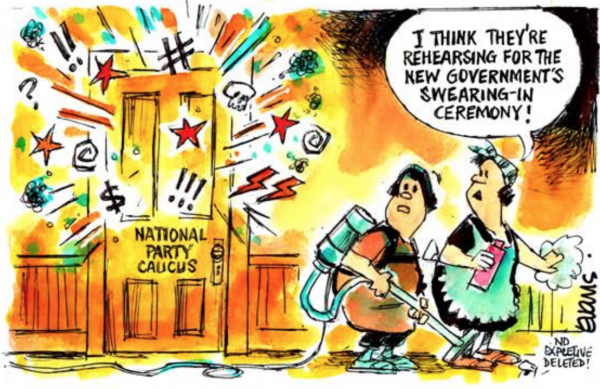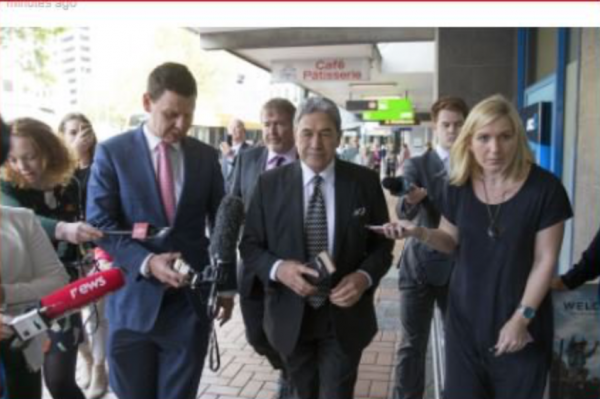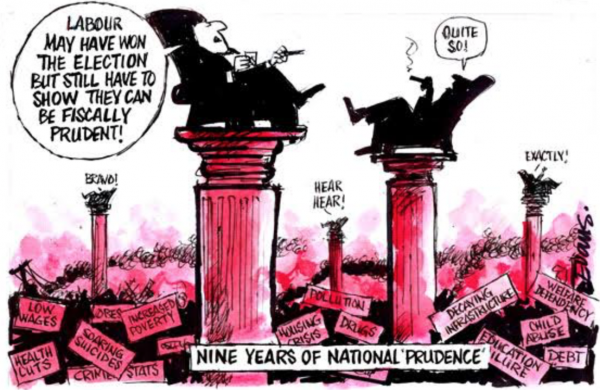
The Daily Blog Open Mic – Wednesday 25th October 2017

Announce protest actions, general chit chat or give your opinion on issues we haven’t covered for the day.
Moderation rules are more lenient for this section, but try and play nicely.
EDITORS NOTE: – By the way, here’s a list of shit that will get your comment dumped. Sexist language, homophobic language, racist language, anti-muslim hate, transphobic language, Chemtrails, 9/11 truthers, climate deniers, anti-fluoride fanatics, anti-vaxxer lunatics and ANYONE that links to fucking infowar.
AUCKLAND PRIDE 2018 RAINBOW WARRIORS: PRIDE AND PEACE
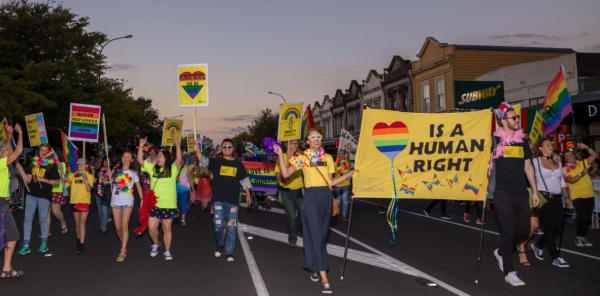
Human rights and LGBTIQ+ people are under attack all over the world. In 2018, the Auckland Pride Festival and Parade will make space and march for peace, love and unity.
“As last year’s 30th anniversary of homosexual law reform reminded us, human rights – and especially LGBTIQ+ rights – have been hard won, and often against the most virulent opposition,” says the Chair of Auckland Pride, Lexie Matheson, ONZM. “Sadly, our Rainbow communities are in the firing line again.”
Trump’s America is winding back the rights of sexual and gender minorities. Chechnya is conducting a vicious programme of murder and repression. In many cultures, trans-people are stopped from being who they are. Racism, religious intolerance, and environmental vandalism are on the rise. Super powers speak the language of war. Even children worry about the future.
Close to home, Australia’s same-sex marriage debate has descended into an ugly public spectacle. In many Pacific Islands, same-sex relations between men can result in imprisonment. Bali claims to be a gay tourist mecca, while elsewhere in Indonesia, gay men are persecuted and publicly caned.
Aotearoa New Zealand stands strong as an island of relative stability and equality in a dark and stormy sea. We don’t know how lucky we are.
We’ve always been Rainbow Warriors. Woman’s Suffrage. Te Whiti’s passive resistance in Parihaka. New Zealanders have been at the forefront of change. We protested against nuclear testing in the Pacific, and went nuclear-free. We protested the Springbok Tour, and helped defeat apartheid. We marched for the freedom to love and for equality under law, and became the first country in Oceania to legalise same-sex marriage.
Now is the time to march again. Let’s turn our celebration and visibility into a beacon of hope. Show the planet that we are many voices who sing in unity. Protest peacefully about the things that matter to us. Offer an olive branch or rautapu. Set free our doves. Fly a thousand paper cranes. Claim our place in the world as proud LGBTIQ+ people, leading lights, out in front, prophets and trailblazers!
“We’re an international network, and we need to be more visible and vocal about what matters,” says Matheson. “As a nation, we need to stand up to the superpowers and say enough is more than enough! We’ve done it before and we need to do it again – for our communities, for our country, and for the planet.”
Moving forward into its sixth year, the Auckland Pride Festival is New Zealand’s largest and loudest social and cultural programme of events for our Rainbow communities – which includes people identifying as gay, lesbian, bisexual, transgender, intersex, takatāpui, whakawāhine, tangata ira tāne, fa’afafine, fakaleiti, akava’ine, māhū, vaka sa lewa lewa, rae rae, fiafifine, fakafifine, palopa, kathoey, hijra, baklâ, genderfluid, genderqueer, pansexual, asexual, queer and questioning – as well as our whānau, family and friends.
The 2018 Auckland Pride Festival will run for two weeks and three weekends, from Friday 2 February until Sunday 18 February, right across the Auckland region, with an incredible range of events that reflect the unique mix of cultures, sexualities and gender identities in New Zealand’s most super-diverse city.
The Festival will open with a Takatāpui Māori Dawn Ceremony on Friday 2 February, followed that evening by the glittering Auckland Pride Gala at Q Theatre on Queen Street.
Major events are already confirmed, with much-loved programmes returning to the Festival in 2018: Bear New Zealand Week will run from 6-11 February, Same Same But Different Writer’s Festival is scheduled for 9 and 10 February, the Heroic Garden Festival takes place on 10 and 11 February, and the ever-popular Ending HIV Big Gay Out returns to Coyle Park on Sunday 11 February.
The Festival’s biggest and most high-profile event, the Auckland Pride Parade will travel the length of Ponsonby Road on Saturday 17 February, followed by the hot and heavy PROUD closing party.
Festival and Parade registrations are open now on the Auckland Pride website. The full programme will be confirmed in December – and is expected to feature local and international theatre and cabaret, comedy, dance, art exhibitions, live music, film and digital media, literature, poetry, debates and discussions, drag and burlesque, youth events and workshops, sports and recreation, gardening, pets, pageants, parties – and any other activity that showcases the incredible creativity, storytelling and talent of New Zealand’s Rainbow communities!
AUCKLAND PRIDE 2018: MAJOR EVENTS AND PROGRAMMES
Auckland Pride Gala
Friday 2 February, 8pm
Q Theatre, 305 Queen Street
Bookings: http://www.qtheatre.co.nz
Bear New Zealand Week
Tuesday 6 – Sunday 11 February
http://bearnewzealand.co.nz
Same Same But Different Writer’s Festival
Friday 9 – Saturday 10 February
http://www.
Heroic Garden Festival
Friday 9 – Sunday 11 February
http://heroicgardens.org.nz
Ending HIV Big Gay Out
Sunday 11 February from midday
Coyle Park, Pt. Chevalier
FREE
http://endinghiv.org.nz/big-
Auckland Pride Parade
Saturday 17 February, 7.30pm
Ponsonby Road
FREE
https://aucklandpride.org.nz/
SUMMARY OF SUBMISSIONS into The People’s Commission on Public Broadcasting and Media
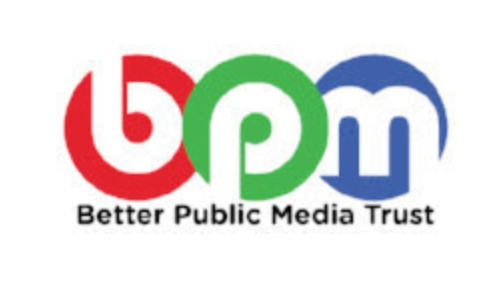
Action Station and the Better Public Media Trust are pleased to release the Summary of Submissions into the People’s Commission on Public Broadcasting and Media.
This Summary is a preliminary report from the People’s Commission. It brings together views and aspirations of the hundreds of people who made submissions, attended public meetings, filled out the online survey and made speeches to our Panel.
The Panel are Bill Ralston, Lance Wiggs, Kay Ellmers, Lizzie Marvelly, Shamubeel Eaqub and Mark Jennings. They held seven public meetings in Wellington, Dunedin, Christchurch, Nelson, Tauranga and two in Auckland, asking for people’s views on public media – including drama, comedy, factual, children’s, media for minorities, and news media.
The many potential technologies and the future shape of platforms were also a big part of the discussions, as were methods of funding, and whether it should be publicly funded at all.
Thousands of documents and days’ worth of recordings were collected. All of that information, much of it detailed and carefully explained, has been brought together into the Summary document by Dr Sylvia Nissen and Dr Michael Schraa.
The key take-outs from the Summary are:
- INVESTMENT – Sufficient and sustainable public funding that is not vulnerable to political or commercial demands.
- INDEPENDENCE – Robust and autonomous broadcasting and media that effectively holds power to account and supports healthy democratic debate.
- INCLUSIVENESS – Diverse content, perspectives and ideas connected to communities in a range of accessible formats and platforms.
Investment was always the big issue at public meetings. The public overwhelmingly want better funding of public media in New Zealand. That includes a national television platform like ABC in Australia, radio at RNZ and online media.
“Current ‘public service broadcasting’ on TV is a shining, glowing example of what happens when services are driven only by dollars: uneducated guesswork as to what we want and what we shall have at the cheapest possible cost.”
Richard, Whakatane
Independence from government and from commercial imperatives is seen as very important by those who submitted.
“Journalism should be well-researched and questioning comment, not for entertainment – the public is being short changed otherwise, in ways which damage democracy.”
Janet, Auckland
Inclusiveness is the third pillar of public aspirations for public media. Perhaps it’s an idea not frequently considered but inclusiveness is vital because diversity of people and ideas on public media promotes social cohesion and progress.
“I want to see people who reflect the demographics of NZ, I am NOT seeing that now in any way and it’s embarrassingly obvious.”
Pikiora, Marton
The release of the Summary of Submissions into the People’s Commission on Public Broadcasting and Media is especially timely.
“The new government has an opportunity to easily address many of the concerns raised in these submissions,” says ActionStation spokesperson Marianne Elliott. “Given both NZ First and Labour media and broadcasting policies are to strengthen public media, with broad agreement from the Greens, these submissions serve as a reminder of the importance of broadcasting and media.”
The NZME/Stuff merger, currently being appealed in court, was addressed many times in submissions to the People’s Commission. Submitters were resoundingly against the merger because it would limit news and current affairs options for audiences, lead to job cuts for journalists, and weaken the fourth estate role of newsmedia in New Zealand through less journalists, commentators and ‘voices’.
None of the submitters accepted the argument put forward by NZME and Stuff that the merger would solve problems with the commercial news business model. It was often noted that these problems reinforced the argument that New Zealand urgently needs better public media, free from the need for sensational headlines and clickbait.
The rest of the Summary can be found here.
This release is a preliminary summary and the actual Report and Recommendations of the Panel will be released in November.
The Summary is available to download here and can be received by emailing here.
We’d like to thank all the contributors and Drs Nissen and Schraa for their great work compiling and summarising the submissions.
Labour must address its own criticism of TPPA – Professor Jane Kelsey
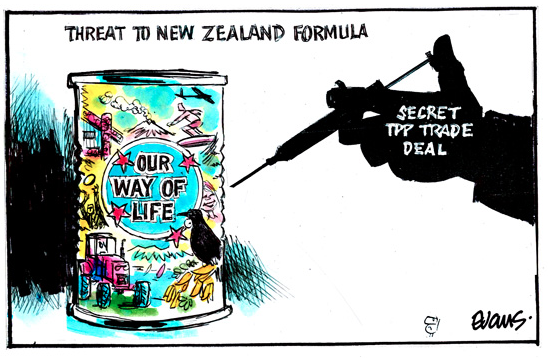
‘Before the new government can decide its position on the Trans-Pacific Partnership Agreement (TPPA), including whether it would genuinely boost exports and provide a net benefit to the country, Labour needs to address its own criticism that there is inadequate evidence to support even the original deal’, says University of Auckland law professor Jane Kelsey.
Labour’s minority viewpoint in the select committee report on the TPPA (set out below) said: ‘the modelling as presented is not sufficient for us to be confident benefits proposed in the National Interest Analysis will eventuate. … Questions about whether the deal might secure just an additional nine jobs for the industry went without compelling answer from Government officials’.’*
Elsewhere, Labour noted that international academic studies showed there could be job losses to New Zealand from the deal.
To remedy these defects, ‘Labour joins calls made by submitters calling for further modelling of the TPPA’s impacts on employment and wage distribution. We also join submitters calling for a related public health analysis of the TPPA impact.’
Labour’s criticisms related to the original agreement, which included the purported economic gains from access to the US market.
Since the US withdrawal, there has been no update of the flawed National Interest Analysis in relation to the TPPA-11, let alone a proper robust cost-benefit analysis across the agreement’s 30 chapters. The only research cited by former Trade Minister Todd McClay was a Japanese study that was based on the same flawed modelling and ignored all the costly downsides.
Professor Kelsey cautions the new government that, if its position on the TPPA is to have any integrity, the first step must be to commission a new independent economic analysis that addresses all the costs and benefits, as well as the public health analysis it said was required.
The Clock is Ticking for Next Tuesday – Wage Peace

The clock is ticking. The question is—how will our new government respond? As Australia gets ready to shutter its Manus Island refugee prison, leaving 800 refugees in danger, will New Zealand revive its offer to take 150 of Australia’s refugees?
Food, water and all resources at the site will be finished as of next Tuesday, October 31st. Men will be given a one-month supply of their medication, many of whom suffer from severe mental illness.
In 2013, New Zealand set up a deal in Queenstown between then Prime Ministers Julia Gillard and John Key. New Zealand agreed to accept 150 of Australia’s refugees annually. Subsequent Australian Prime Ministers later tabled that deal, fearing New Zealand would become a ‘consolation prize’.
‘This is our opportunity for a fresh New Zealand government to reassess the terms of that problematic agreement and see what can be done to help these long suffering refugees. The utter cruelty of the Australian government continues. They have been offered places in their Nauru prison instead,’ said Tracey Barnett, journalist and curator of ‘Transplanted’, a ten-day ‘talking space’ around refugee issues that is opening in Wellington at The New Zealand Portrait Gallery, Oct 27 – Nov 5th. Barnett is on the executive board of the Refugee Council of New Zealand and is the author of The Quiet War on Asylum’. Most recently she launched ‘Welcome #500Now’, an initiative that four former Prime Ministers have come together to endorse, Helen Clark, Sir Geoffrey Palmer, Jim Bolger and Mike Moore.
‘These are just some of the issues that will be up for discussion by our speakers over these next ten days. The combination of a new government with fresh eyes to these policies—and the urgency of the news happening right now on Manus are going to push us to reassess where New Zealand sits now. Can we be the moral voice, leading our region on fair refugee policy? What an incredible opportunity to be just that,’ said Barnett.
‘Transplanted: Refugee Portraits of New Zealand’ will be opening this Friday, October 27th , 6:00pm with featured speaker, Sir Geoffrey Palmer. Sessions will include panel discussions with young refugee leaders, including new MP Golriz Ghahraman and current Young New Zealander of the Year, Rez Gardi, as well as a session on ‘Hot Spots’, a discussion with the ambassadors of Italy and Turkey.
A highlight of the exhibit will be weekend ‘Human Library’ sessions where former refugees will sit down to chat with patrons one-on-one or in small groups to exchange views, share stories and simply see where their conversations go.
‘It’s a real shame that we don’t think of the word ‘refugee’ for what it is—a transition, a terrible chapter in what is ultimately a much bigger life.’ said Barnett. ‘Until we start disassociating the word ‘refugee’ from ‘terrorist’ and ‘illegal’, and sit it alongside the reality—of teachers, builders, lawyers and students, we will never see the truer dimension these lives deserve. These portraits are us, ‘transplanted’ lives, Kiwis whose stories are ours now too.’
The stunning, two-metre tall, black and white close-up portraits are by award winning photographer Alistair Guthrie.
Find the full programme here: https://wagepeacenz.org/transplanted-2/
David Macpherson: New Government needs new action on Mental Health & Suicide
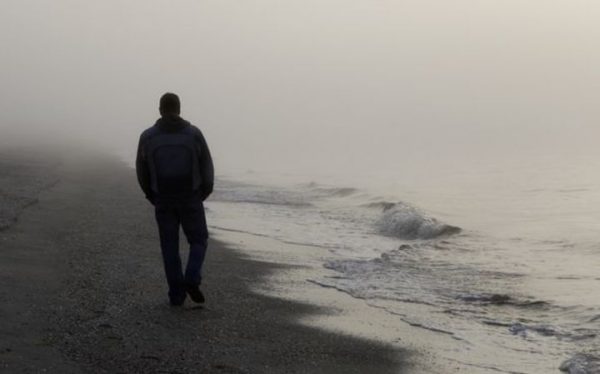
Still feeling a warm glow of satisfaction over Labour Weekend following the ousting of former Health Minister Jonathan Coleman, whose inaction on mental health and suicide was legendary, I was brought down to earth sharply by a story published on Labour Day about Jonny – a young male Christchurch suicide victim.
Seeing a photo of Jonny playing a guitar and wearing a grey knitted beanie, reminded me strongly of our son Nicky – usually attired similarly and also a suicide victim, two and a half years ago.
The article brought home to me emphatically that just because we have a new Government, it doesn’t mean the awful scourge of suicide and the dramatic worsening in mental health statistics will somehow melt away because Jacinda, Winston and James have got some policies that sound like they might be an improvement.
Feeling like I was experiencing a deja vue episode, I read about the two-decades long struggle of Jonny and his supportive family to get decent treatment and support from Canterbury mental health authorities.
Psychiatric ‘professionals’ did not believe that Jonny was ‘hearing voices’ and kept releasing him after psychotic episodes without support plans in place, other than a ‘monthly injection’. The ‘professionals’ told Jonny’s family that he ‘was an adult’ and that his family ‘had no authority to speak for him’ – despite diagnosing him as schizophrenic, and placing under a compulsory Mental Health Act care order – exactly the same response our family received from the local branch of ‘professionals’ in the Waikato.
Jonny died alone less than two days after his last stay in Hillmorton Hospital, Canterbury DHB’s mental health inpatient centre.
Shortly after we published Jonny’s story on the ‘Nicky Autumn Stevens’ Facebook page, an Invercargill woman posted a lengthy comment outlining her similar, and ongoing, experiences with a family member and the mental health ‘professionals’ in her area.
The struggles and heartache of these Christchurch and Invercargill families, and our Waikato family – and thousands of other New Zealand families – will continue until there are dramatic and meaningful changes to our mental health system.
The incoming Government MUST URGENTLY
- Set up the promised Inquiry into our mental health system within the next few months (and not the ‘review’ that some MPs mentioned just before the election);
- Get trained counsellors into our high schools and lower schools by the start of next year, and – as soon as they can be trained – mental health practitioners in there as well;
- Fund residential respite care centres in all regions, staffed by trained people who can support those leaving the acute mental health inpatient units, OR head them off needing to go in there;
- Develop in every DHB area support programmes for mental health patients that do not rely solely on drug regimes, and provide ‘wrap-around’ services including accommodation and employment;
- Require mental health practitioners to consult, and work with families of mental health patients to look at better ways of harnessing family support for their loved ones.
Following the Inquiry – whose panel must include recovering patients and family/whanau membership – the Government should develop medium and long term plans to turn around New Zealand’s mental health services, and reduce the terrible suicide and mental health statistics this country is experiencing.
David Macpherson is TDB’s mental health blogger. He became involved in mental health rights after the mental health system allowed his son to die. He is now a Waikato DHB Member.
Political Caption Competition

Her face says it all.
The Daily Blog Open Mic – Tuesday 24th October 2017

Announce protest actions, general chit chat or give your opinion on issues we haven’t covered for the day.
Moderation rules are more lenient for this section, but try and play nicely.
EDITORS NOTE: – By the way, here’s a list of shit that will get your comment dumped. Sexist language, homophobic language, racist language, anti-muslim hate, transphobic language, Chemtrails, 9/11 truthers, climate deniers, anti-fluoride fanatics, anti-vaxxer lunatics and ANYONE that links to fucking infowar.
Update on my case against the NZ Police with the Human Rights Review Tribunal
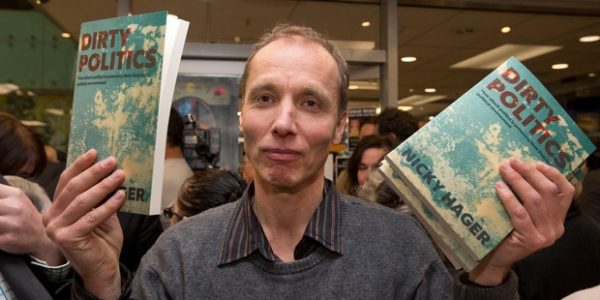
My case against the NZ Police for their breach of my privacy and breach of my civil rights is slowly continuing in the background.
The Police have responded to the Privacy Commissioner’s report that they breached my civil rights and my privacy and the Human Rights Review Tribunal is very, very, very, very, very slowly moving forward.
To date the process seems aimed at giving all the benefit of the doubt to the Police.
I have had to send a letter into the Human Rights Review Tribunal which has been forwarded to the NZ Police. The HRRT have asked why they should hear this case sooner rather than later.
This is my response to the HRRT and the NZ Police.
I would urge that this case is heard as soon as possible as the Labour Party of NZ have now become the Government and it is my belief that the NZ Police investigation into this Dirty Politics hack also included high ranking members of the Labour Party.Throughout this process the NZ Police have lied and attempted to hide the true extent of their investigation. They misled the Nicky Hager team when they were forced to disclose information about the raid on him by omitting that they had also spied on me.If the scope of this failed and flawed investigation also included privacy breaches and BOR breaches against Labour Party officials then the incoming Labour Party Government must be made aware of this.The Privacy Commission found that the Police breached my privacy and the Privacy Commissioner himself intervened in my investigation to note that the information seized from my banks were a breach of my Civil Rights as they amounted to an unlawful search.I would also point out that the NZ Police still have my banking information and it is available on their Intelligence Computer to a range of other security agencies. Allowing them to hold onto my information that they took illegally for one second longer is utterly unacceptable.Throughout this process to expose the NZ Police breach of my privacy and breach of my human rights the Banking Ombudsman and the Privacy Commissioner have been exemplary. I am waiting for the Human Rights Review Tribunal to show the same leadership.
BREAKING: Why National Party MP Matt King is claiming a coup has stolen NZ election

This man believes a coup has occurred in NZ
I’m not sure who is more bitter at losing the election – National voters or the mainstream media.
As if the NZ Herald accusing Jacinda of witchcraft to curse the All Blacks wasn’t bad enough and the constant howls of faux outrage by the mainstream media that they don’t have enough details about the new coalition Government, (despite ignoring National’s dirty politics for 9 years), try reading this bullshit without vomiting…

…why the living Christ is a National Party MP sowing the seeds of treason by declaring the current Government has stolen the election? Firstly, anyone who claims the mainstream media in NZ are biased towards the left wing also believe Donal Trump is one of the leading intellectuals of our age.
Secondly, if you think that MMP cheated National somehow then you don’t understand MMP.

Let’s put aside the irony of a National Party MP daring to call the formation of the new Government a coup when his Party in power colluded with the Secret Intelligence Service to falsely smear Phil Goff months before the 2011 election. National crying abuse of power is like Harvey Weinstein lecturing on everyday sexism.
The 2017 election was won, fair and square by Labour, NZ First and the Greens. Attempting to claim a coup has occurred is intentionally dangerous and spiteful.
It is extraordinary that a Party who were only a month ago screaming about an $11billion fiscal hole that never existed are now suddenly MMP math critics.
This is the sort of shit National and their corporate media allies will be spinning for the next 3 years as they work to undermine and destabilise this democratic majority win.
The Left won the 2017 election with hope, compassion and vision. National will attempt to rob them of that with fear, hate and deceit.
UPDATE: Matt King removed his post claiming a coup 20 minutes after this blog was posted.
The Daily Blog Open Mic – Monday 23rd October 2017

Announce protest actions, general chit chat or give your opinion on issues we haven’t covered for the day.
Moderation rules are more lenient for this section, but try and play nicely.
EDITORS NOTE: – By the way, here’s a list of shit that will get your comment dumped. Sexist language, homophobic language, racist language, anti-muslim hate, transphobic language, Chemtrails, 9/11 truthers, climate deniers, anti-fluoride fanatics, anti-vaxxer lunatics and ANYONE that links to fucking infowar.
The purge the civil service desperately requires – how Jacinda masters a hostile public service
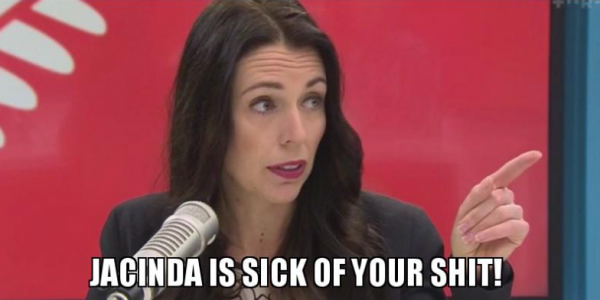
After 9 years of National, our public service has become a highly politicised and increasingly ideologically damaged entity which threatens to stop any progressive change that the new Government may want to enable.
Highly politicised because public servants have manipulated rules to provide their political masters with information they shouldn’t be able to access, (Winston’s pension over payment being the most recent example), and increasingly ideological because almost the entire welfare state is geared towards punishing beneficiaries rather than helping them.
If the new Government want to force their agenda through, they must begin by radically purging previous political appointees. There are thousands of positions that now need filling on various Quangos throughout the country and Labour needs to start immediately there to ensure their eyes and their ears are sitting on Boards to ensure policy implementation isn’t being stymied by right wing Public Servants.
Now would be a good time to sit down with the PSA to see if they are genuine in improvement of public service values rather than protecting their members jobs. If such a partnership is possible, Labour could use that relationship to force the State sector bosses to change ideological direction, but Labour could also force change by supporting socially progressive NGOs critical of social policy to critique the welfare agencies.
Setting up a whistle blower 0800 number so that public servants can dob in their managers and bosses who are ignoring their public service obligations would also be a good means of forcing change.
Passing new policy is one thing, having a right wing public service implement it is another.



